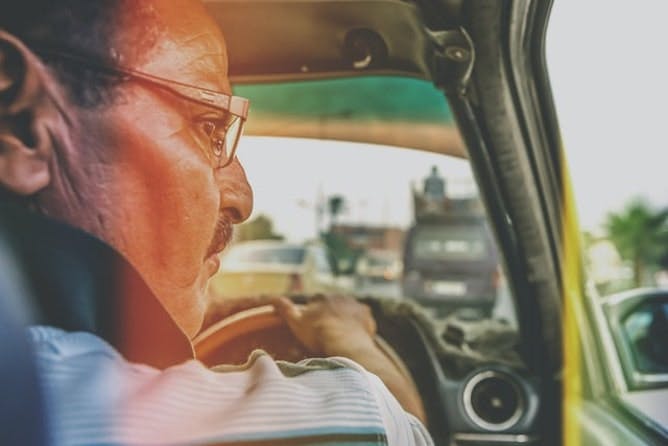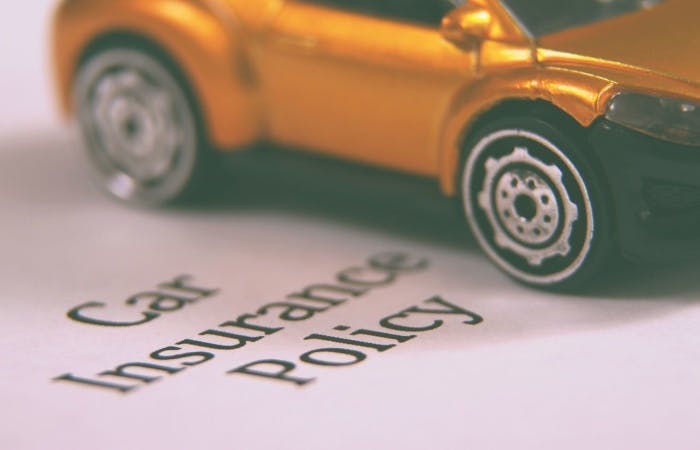
If you’ve had a stroke, you might wonder if you’re legally allowed to drive in the UK, and if there’s anything you must do before getting behind the wheel. In this article, we’ll look at the rules and regulations around driving after a stroke, and you’ll find out exactly where you stand.
Please bear in mind that this is general information around driving after a stroke, based on the DVLA’s advice. We recommend you also seek individual advice from your doctor if you’ve had a stroke or live with any other medical conditions that could affect your driving.
This information is for car and motorcycle licences only.
Driving in the UK after a stroke
You’re legally not allowed to drive for a calendar month after having a stroke or transient ischaemic attack (TIA or ‘mini-stroke’). For example, if you have a stroke on the 5th of January, you shouldn’t drive until the 5th of February, at least.
If you can drive safely after the month, you may be able to drive again. However, this depends on the type of stroke you had and whether you have any other medical conditions.
Do you need to tell the DVLA if you’ve had a stroke?
If you’ve had a single stroke, with no seizures or brain injury, you can probably start driving after waiting a calendar month.
However, there are some instances where you’ll need to tell the DVLA about your stroke. These are:
- If your ability to drive has been affected
- If your doctor tells you not to drive
- If you’ve had several TIAs/mini-strokes
- If you’ve had more than 1 stroke in 3 months
- If you need a vehicle with adapted controls (like a steering wheel knob, for example)
- If you’ve had brain surgery
- Or if you had any seizures
Remember, if you don’t tell the DVLA about a medical condition that affects your driving, you could be fined £1000 and end up with a criminal conviction. If in doubt, it’s always best to speak to the DVLA for their advice.
How to tell the DVLA you’ve had a stroke

If you need to tell the DVLA about your stroke, you’ll need to do the following things:
- Report your medical condition on the .gov website
- The DVLA might need more information and could contact your GP/consultant, arrange a medical assessment, or ask you to take a driving assessment
- The DVLA will then tell you if you can continue driving, if you need to adapt your vehicle, or if you need to have any assessments
This entire process should take around 6 weeks, but the DVLA will tell you if it’ll take longer.
What if the DVLA says you can’t drive after a stroke?
If you’re unfortunately told you can’t drive, don’t worry — it might not be the end of the road. Over time, many people fully recover from a stroke so you might be able to be reassessed in the future. If the DVLA revoke your licence, they will tell you if, and when, you can reapply for your licence.
Once the date you can reapply comes around, you can do so by completing a D1 form.
Driving again after a stroke

If your stroke hasn’t affected your driving, or if the DVLA has decided you can continue driving as normal, there are still a couple of things to do.
Tell your insurance
Before you get back on the road, you’ll need to inform your insurance provider of your stroke/TIA. If you forget to do this, you could invalidate your insurance. Always speak to your insurer to find out their processes and policies around driving after a stroke.
Driving lessons
This is entirely up to you, but some people feel better by taking a refresher driving course after a stroke. A driving instructor will assess your driving and help you polish up on any areas they feel it’s needed.
Other medical conditions
There are over 100 medical conditions that can affect your driving. It’s always best to be on the safe side, so check if your medical condition is listed and find out what you need to do next. We cover everything from driving with epilepsy through to which prescription drugs can stop you from driving.
Subscribe for driving advice, offers & more
We'd love to let you know about our courses, news and offers via email. You may unsubscribe at any time.
Star Genie Limited trading as PassMeFast. Company number 10093359
Copyright © 2024 owned by Star Genie Limited
PassMeFast, Blue Tower, MediaCityUK, Salford, M50 2ST

